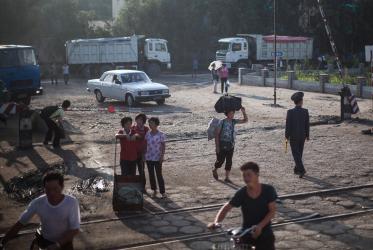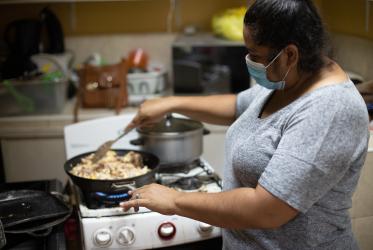Displaying 1 - 20 of 31
Dealing with traumas and healing of wounds
04 June 2019
A faith-based, holistic approach to HIV and AIDS-care
13 March 2019
Faith and HIV treatment go hand in hand
06 March 2019
Turning mercy and compassion into action
04 March 2019
On the journey to HIV – bridging gaps, debunking myths
21 February 2019
Assisi: On the ecumenical pilgrimage into a more sustainable future
03 September 2018
#WCC70: Nathan Söderblom, ecumenical pioneer
29 August 2018
What difference does dressing in black make?
02 August 2018
Working toward an AIDS-free generation
26 July 2018
WCC students study what makes a peace communicator
18 July 2017
G7 must address famine
22 May 2017















